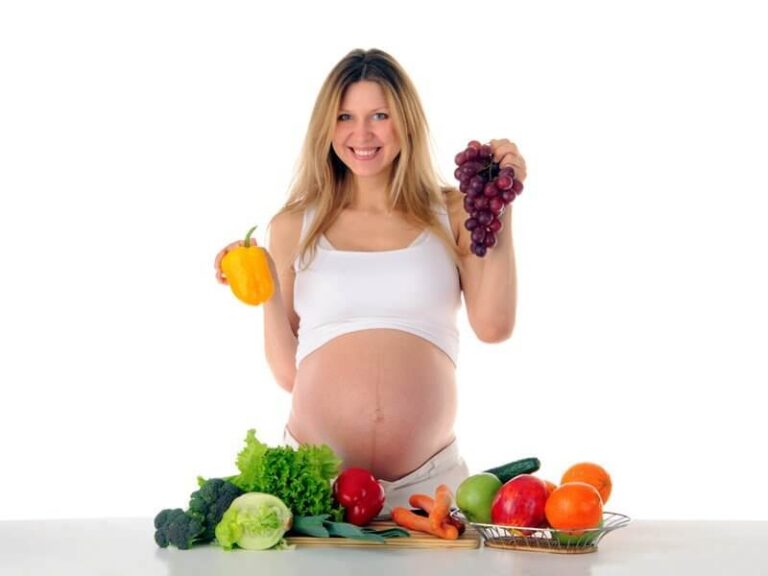
Are you pregnant? Are you hungry? Looking for a snack that will make your tummy and baby happy? You probably hear this a lot: Eating nutritious food is very important when you are pregnant.
We are here to make your pantry a one-stop shop for healthy and delicious food that will give your baby the best start in life.
When creating your healthy eating plan, you’ll want to focus on whole foods that give you high amounts of the good stuff, as you should when you’re not pregnant:
- protein
- vitamins and minerals
- healthy fat types
- complex carbohydrates
- fiber and fluids
Here are 13 super nutritious foods you should eat while pregnant to help make sure you reach these nutritional goals.
Dairy products
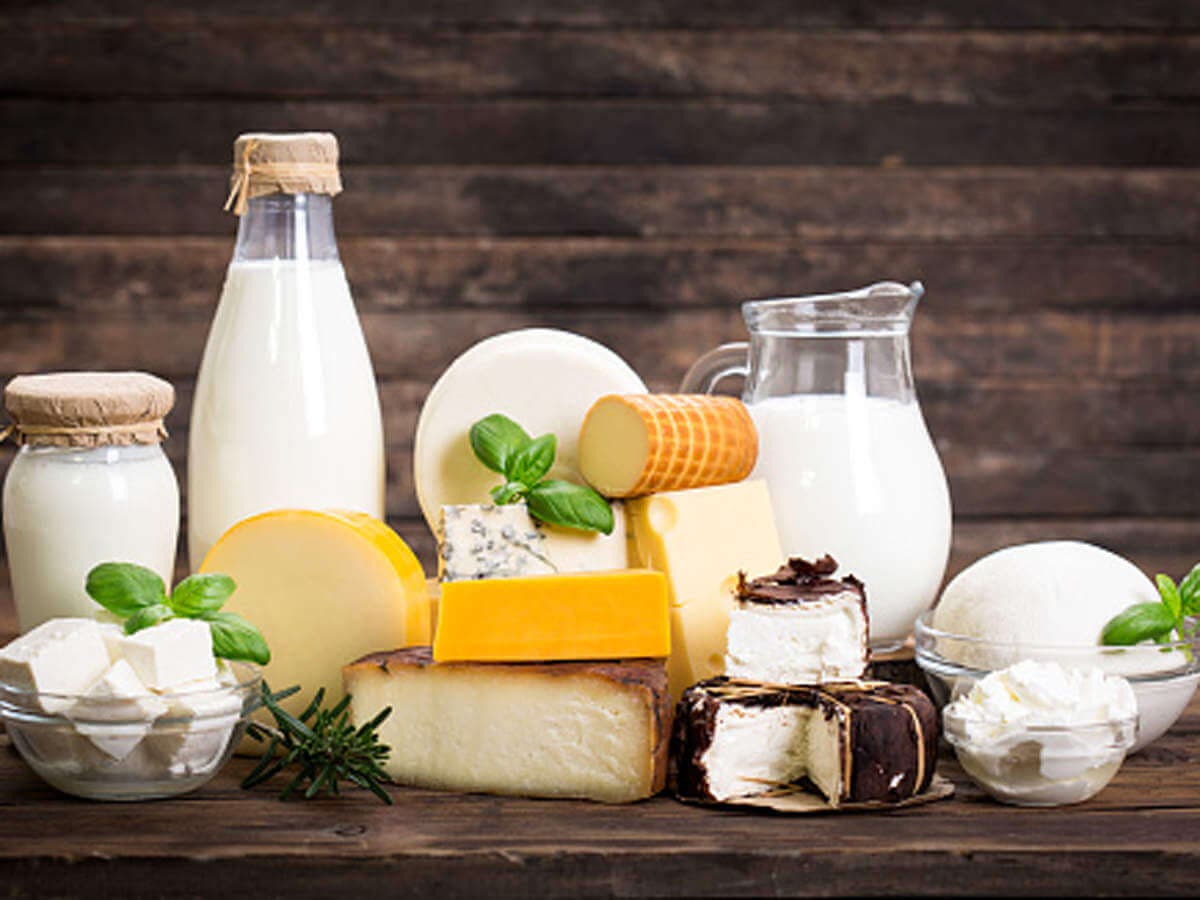
During pregnancy, you need to consume extra protein and calcium to meet the needs of your growing little one. Dairy products such as milk, cheese, yogurt should be on the dota.
Dairy products contain two types of high-quality protein: casein and whey. Dairy products are the best source of calcium and provide high amounts of phosphorus, B vitamins, magnesium and zinc.
Yogurt, especially Greek yogurt, contains more calcium than most other dairy products and is particularly beneficial. Some varieties also contain probiotic bacteria that promote digestive health.
If you are lactose intolerant, you can also do the following to tolerate yogurt
especially probiotic yogurt. Check with your doctor to see if you can test it. A world of yogurt smoothies and parfaits may be waiting for you.
Legumes
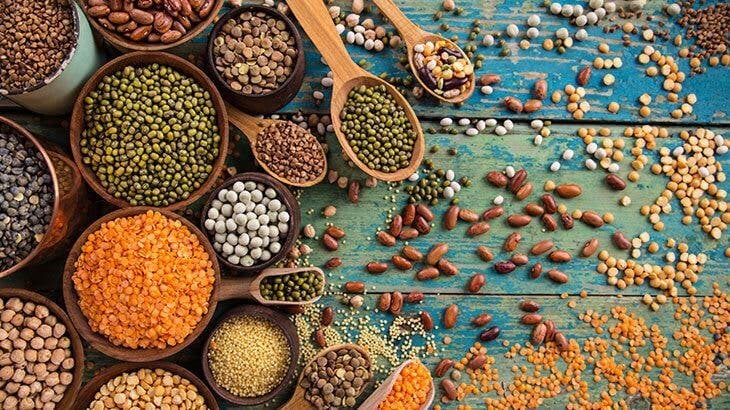
This food group includes lentils, peas, beans, chickpeas, soybeans and peanuts (in other words, all kinds of great recipe ingredients!).
Legumes are great plant-based sources of fiber, protein, iron, folate and calcium, which your body needs more of during pregnancy.
Folate is one of the most important B vitamins (B9). It is especially important for you and your baby in the first trimester and even before.
You will need at least 600 micrograms (mcg) of folate. Every day, this can be difficult to achieve with food alone. But adding legumes can help you get there, along with supplementation according to your doctor’s advice.
Legumes are also generally very high in fiber. Some varieties are also high in iron, magnesium and potassium. Consider adding legumes to your diet with meals such as hummus on whole grain toast, black beans in taco salad or lentil curry.
Sweet potato
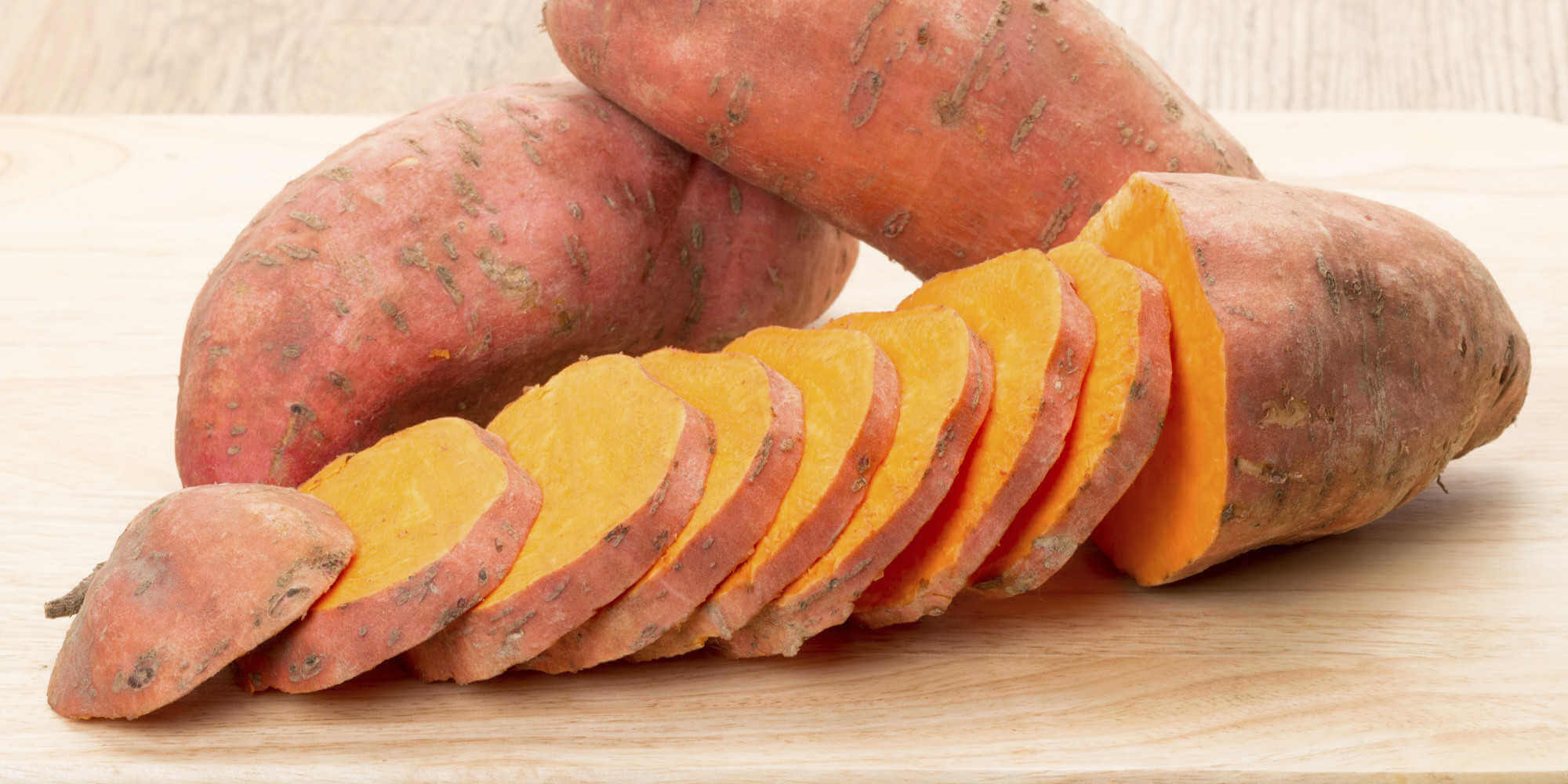
Not only are sweet potatoes deliciously cooked in thousands of ways, they are also rich in beta carotene, a plant compound that is converted into vitamin A in your body.
Vitamin A is essential for the baby’s development. Beware of excessive animal sources of vitamin A, such as organ meats. Use in high amounts can cause toxicity.
Fortunately, sweet potatoes are an abundant source of plant-based beta carotene and fiber. Fiber keeps you fuller longer, reduces blood sugar spikes and improves digestive health (which can really help if pregnancy constipation hits).
For a great breakfast, try sweet potatoes as the base of your morning avocado toast.
Salmon
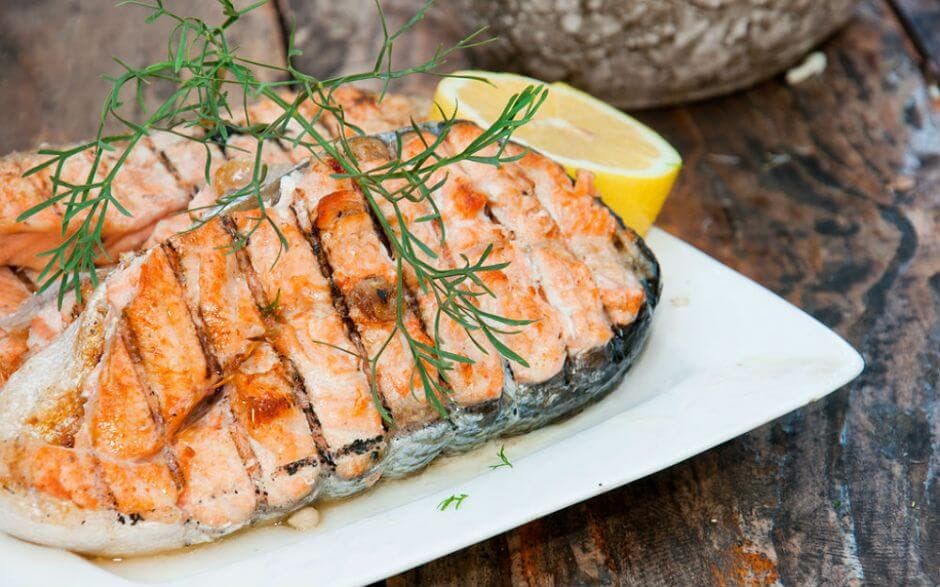
Smoked, teriyaki grilled or pesto salmon salmon on a whole wheat bagel is a welcome addition to this list. Salmon is rich in essential omega-3 fatty acids, which have many benefits.
These are found in high quantities in seafood and help form your baby’s brain and eyes and may even help increase the duration of gestation.
But wait: Have you been told to limit your seafood intake because of mercury and other contaminants found in high-mercury fish? You can still eat oily fish such as salmon.
Here are fish high in mercury:
- swordfish
- shark
- king mackerel
- marlin
- big-eyed tuna
- tile fish from the Gulf of Mexico
Salmon is also one of the very few natural sources of vitamin D, which most of us lack. It is important for bone health and immune function.
Eggs
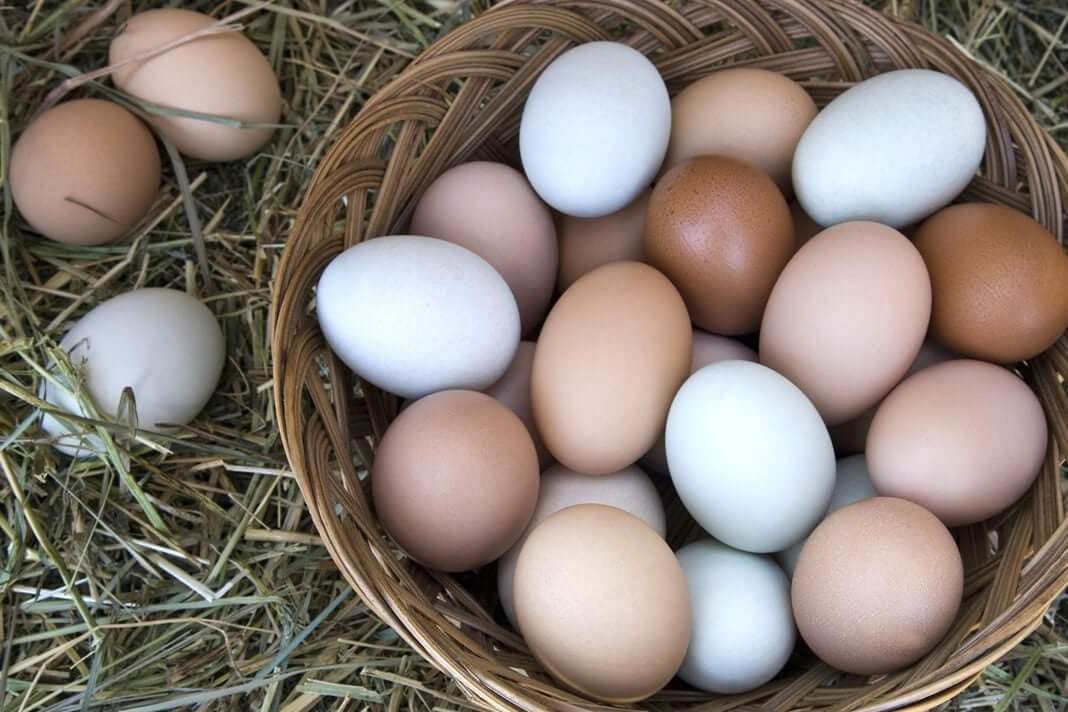
These incredible, edible eggs are the ultimate health food, as they contain a little bit of almost every nutrient you need. A large egg contains around 80 calories, high quality protein, fat and many vitamins and minerals.
Eggs are a great source of choline, a vital nutrient during pregnancy. It is important in the baby’s brain development and helps prevent developmental abnormalities of the brain and spine.
A single whole egg contains roughly 147 milligrams (mg) of choline per day, which would bring you closer to the current recommended choline intake of 450 mg per day while pregnant (although more studies are being done to determine whether this is enough).
Here are some of the healthiest ways to cook eggs. Try them in feta with spinach or in a chickpea mix.
Broccoli and dark green leafy vegetables
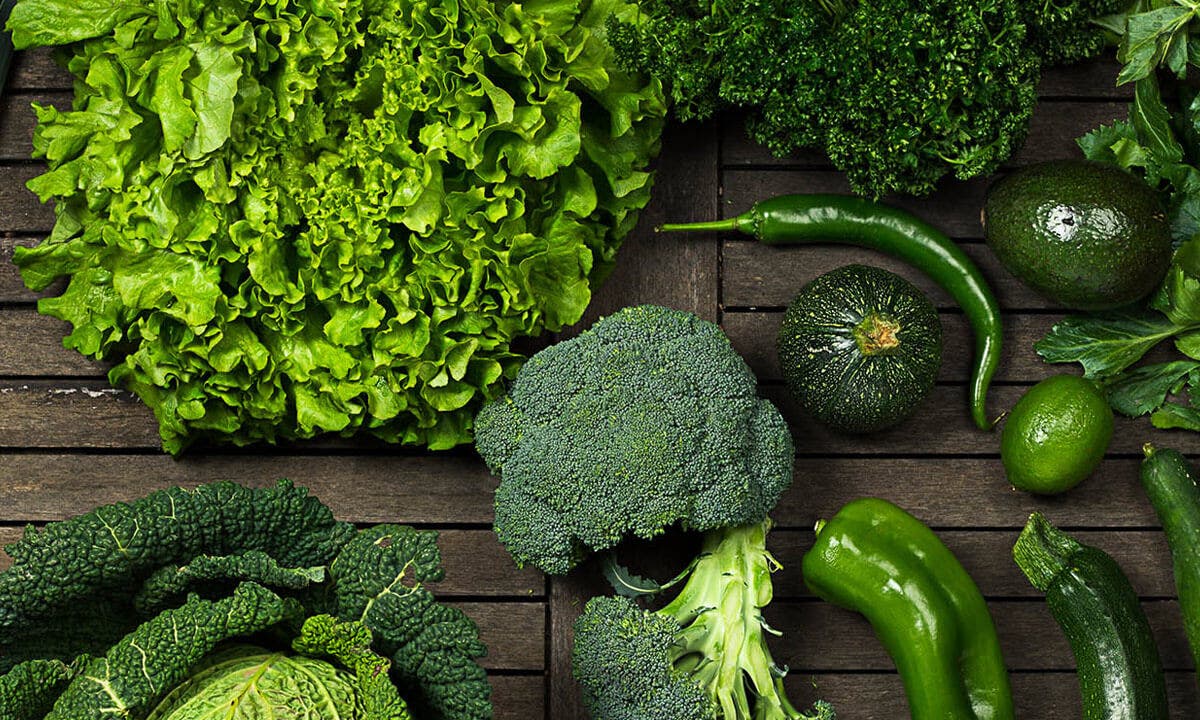
No surprises here: Broccoli and dark green vegetables like kale and spinach contain many of the nutrients you need. Even if you don’t like to eat them, they can often squirrel into all kinds of dishes.
Benefits include fiber, vitamin C, vitamin K, vitamin A, calcium, iron, folate and potassium. They are a bonanza of green goodness.
Adding green vegetables to your portions is an effective way to pack in vitamins and fend off constipation because of all that fiber. Vegetables are also important for a reduced risk of low birth weight.
Try this kale egg Florentine recipe or mix some spinach with a green smoothie and you won’t even realize it’s there.
Lean meat and proteins
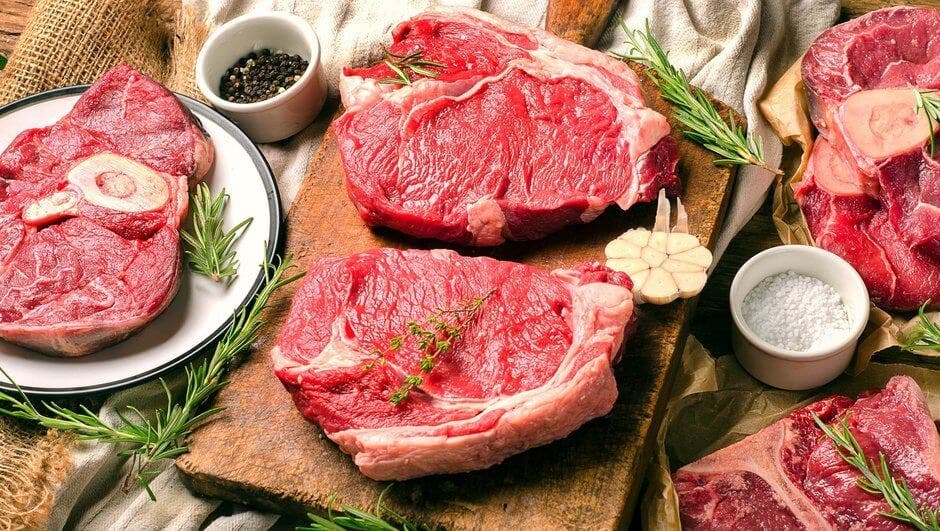
Lean beef, pork and chicken are excellent sources of high-quality protein. Beef and pork are also rich in iron, choline and other B vitamins, which you will need in higher amounts during pregnancy.
Iron is an important mineral used by red blood cells as part of hemoglobin. As your blood volume increases, you will need more iron. This is especially important in your third trimester.
Low iron levels in early and mid pregnancy can cause iron deficiency anemia.
It can be difficult to meet your iron needs from food alone, especially if you develop an aversion to meat or are vegetarian or vegan. However, for those who can, eating lean red meat regularly can help increase the amount of iron you get from food.
Pro Tip: Pairing vitamin C-rich foods like oranges or bell peppers with iron-rich foods can also help boost absorption.
Fruits
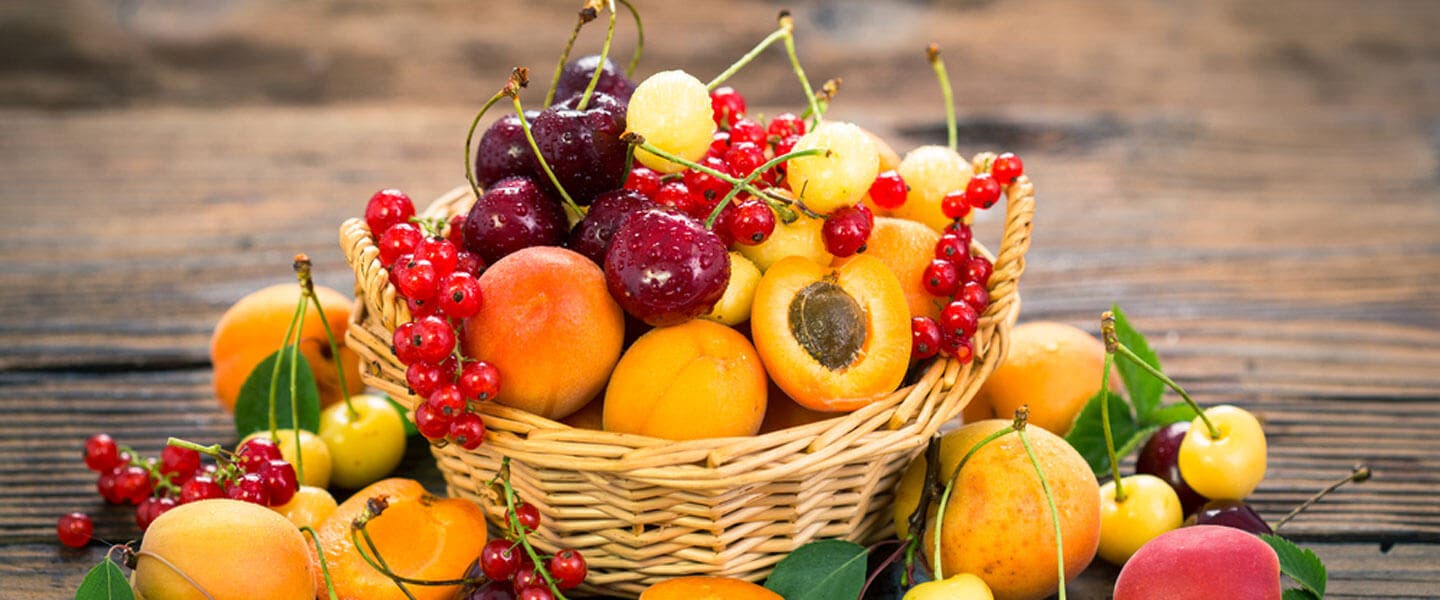
Fruits pack a lot of goodness in their small packages, including water, healthy carbohydrates, vitamin C, fiber and antioxidants.
Fruits have a relatively low glycemic index value, so they should not cause large spikes in blood sugar.
Fruits are a great snack because they contain both water and fiber. They provide a lot of flavor and nutrients, but contain relatively few calories.
Some of the best berries to eat while pregnant are blueberries, raspberries, goji berries, strawberries and acai berries.
Whole grains
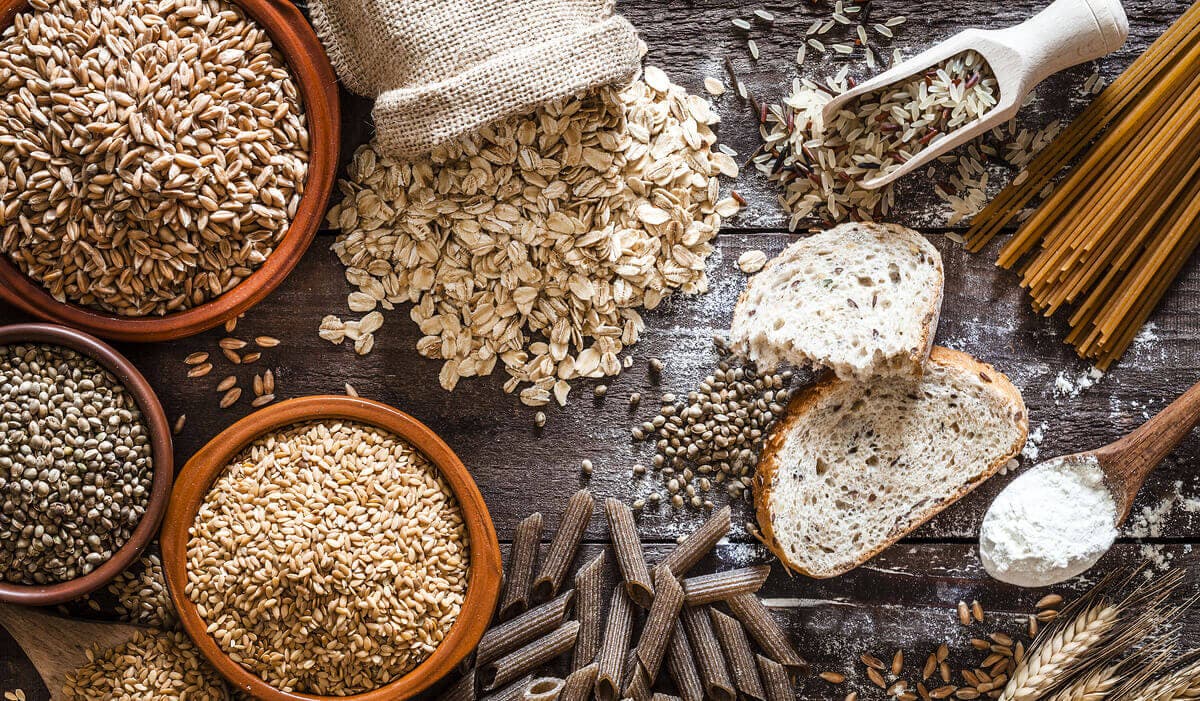
Unlike their refined counterparts, whole grains are packed with fiber, vitamins and plant compounds. Think oats, quinoa, brown rice, wheat berries and barley instead of white bread, pasta and white rice.
Some whole grains, such as oats and quinoa, also contain reasonable amounts of protein. They also push a few buttons that are often lacking in pregnant people: B vitamins, fiber and magnesium.
Avocado
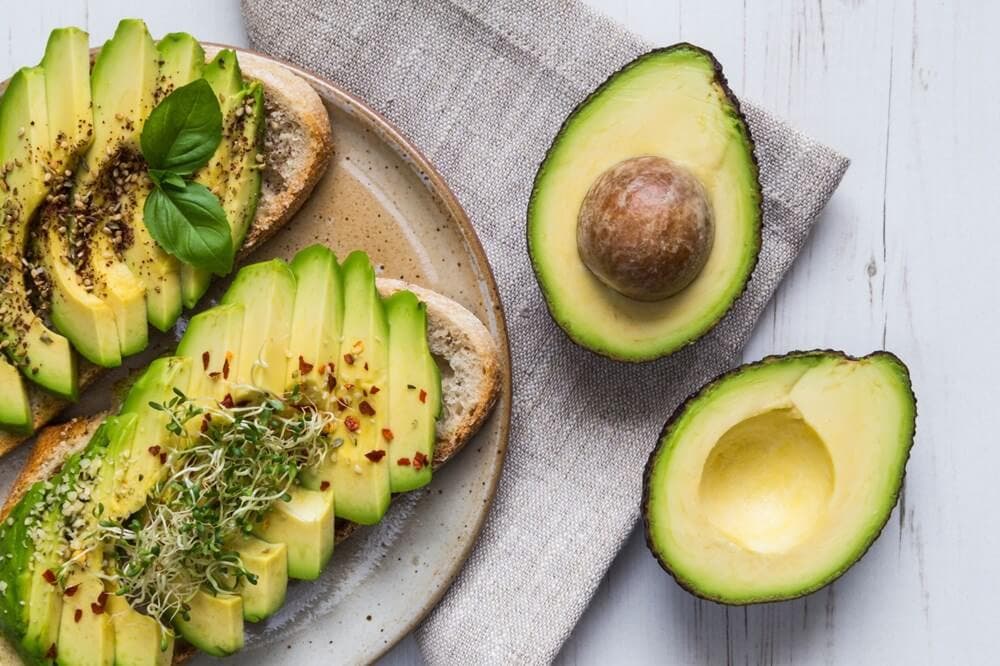
Avocados are an unusual fruit as they contain a large number of monounsaturated fatty acids. This gives them a buttery and rich flavor – perfect for adding depth and creaminess to a dish.
It is also high in fiber, B vitamins (especially folate), vitamin K, potassium, copper, vitamin E and vitamin C.
Due to their high content of healthy fats, folate and potassium, avocados are an excellent choice during pregnancy (and always).
Healthy fats help build your little one’s skin, brain and tissues, and folate can help prevent neural tube defects, developmental abnormalities of the brain and spine, such as spina bifida.
Potassium can help relieve leg cramps, a side effect of pregnancy for some women. In fact, avocados contain more potassium than bananas.
Try avocados as guacamole, in salads, smoothies and whole wheat bread, but also as a substitute for mayonnaise or sour cream.
Dried fruit
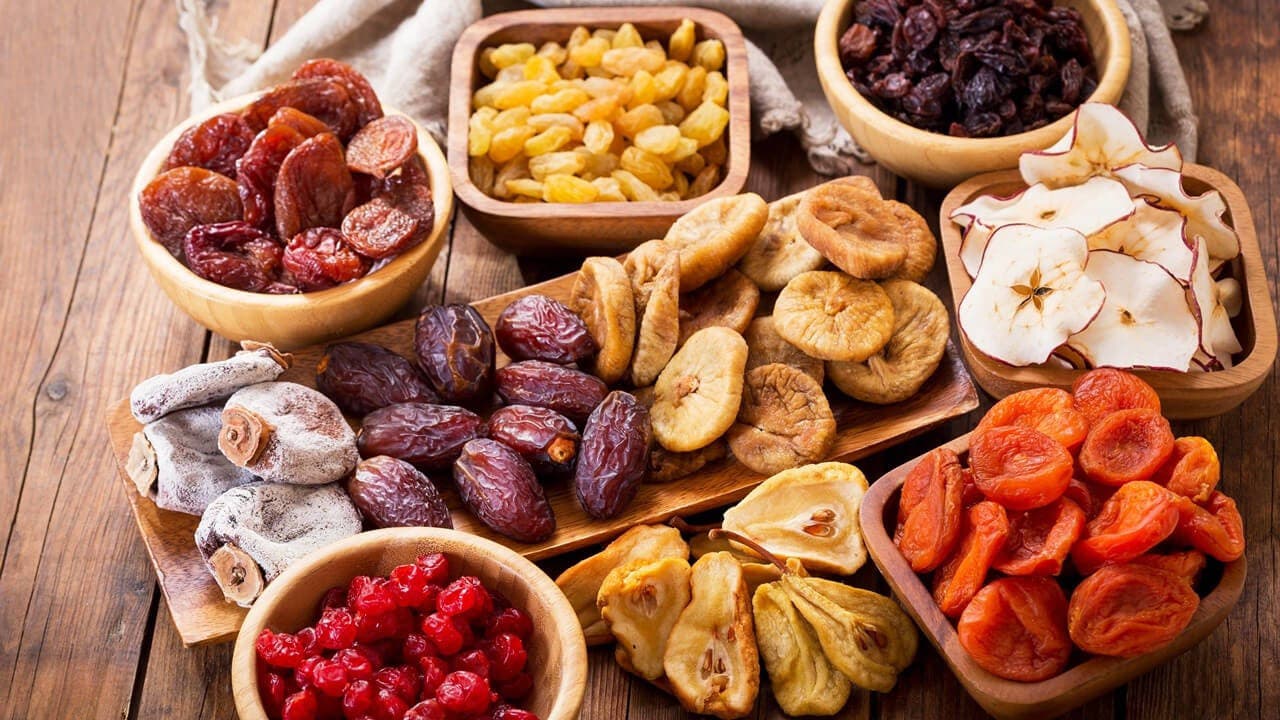
Dried fruits are usually high in calories, fiber and various vitamins and minerals. A piece of dried fruit contains the same amount of nutrients as fresh fruit, only dehydrated and in a much smaller form.
One serving of dried fruit can provide a large percentage of the recommended intake of many vitamins and minerals, including folate, iron and potassium.
Prunes are rich in fiber, potassium and vitamin K. They are natural laxatives and can be very helpful in relieving constipation. Dates are high in fiber, potassium, iron and plant compounds.
However, dried fruits also contain high amounts of natural sugars. Be sure to avoid candied varieties, which contain even more sugar.
Although dried fruit can help increase calorie and nutrient intake, it is generally not recommended to consume more than one serving at a time.
Fish liver oil
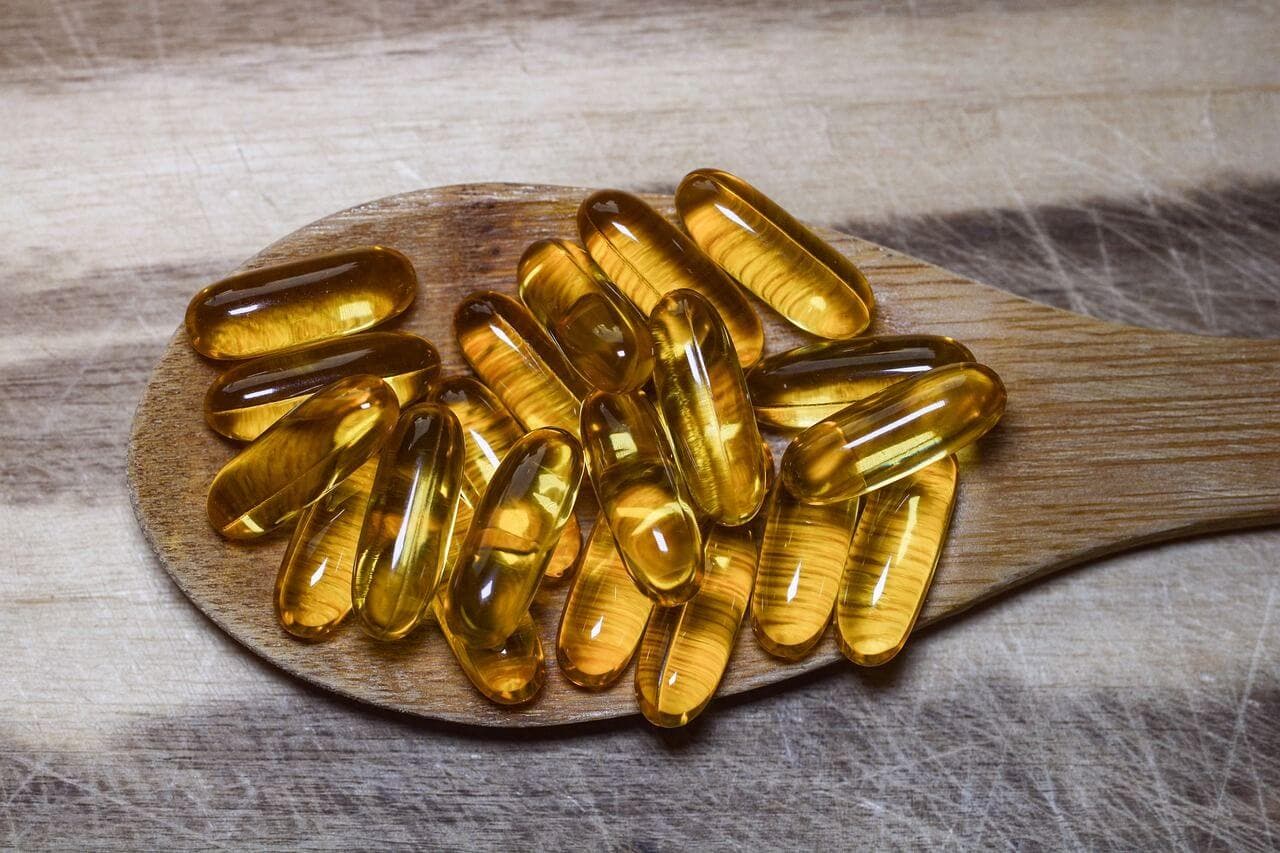
Fish liver oil is mostly made from the fatty liver of cod. It is rich in the omega-3 fatty acids EPA and DHA, which are essential for fetal brain and eye development.
Fish oil supplementation may help protect against preterm labor and may benefit fetal eye development.
Fish liver oil is also very high in vitamin D, which many people don’t get enough of. It can be very useful for those who don’t eat seafood regularly or don’t take omega-3 or vitamin D supplements.
A single serving (1 tablespoon or 15 milliliters) of cod liver oil provides more than the recommended daily intake of omega-3, vitamin D and vitamin A.
However, it is not recommended to consume more than one serving a day, as too much pre-formed vitamin A can be dangerous for your baby. High levels of omega-3 can also have blood-thinning effects.
Low-mercury fish such as salmon, sardines, canned light tuna or pollock can also help you reach your omega-3 goals.
Water
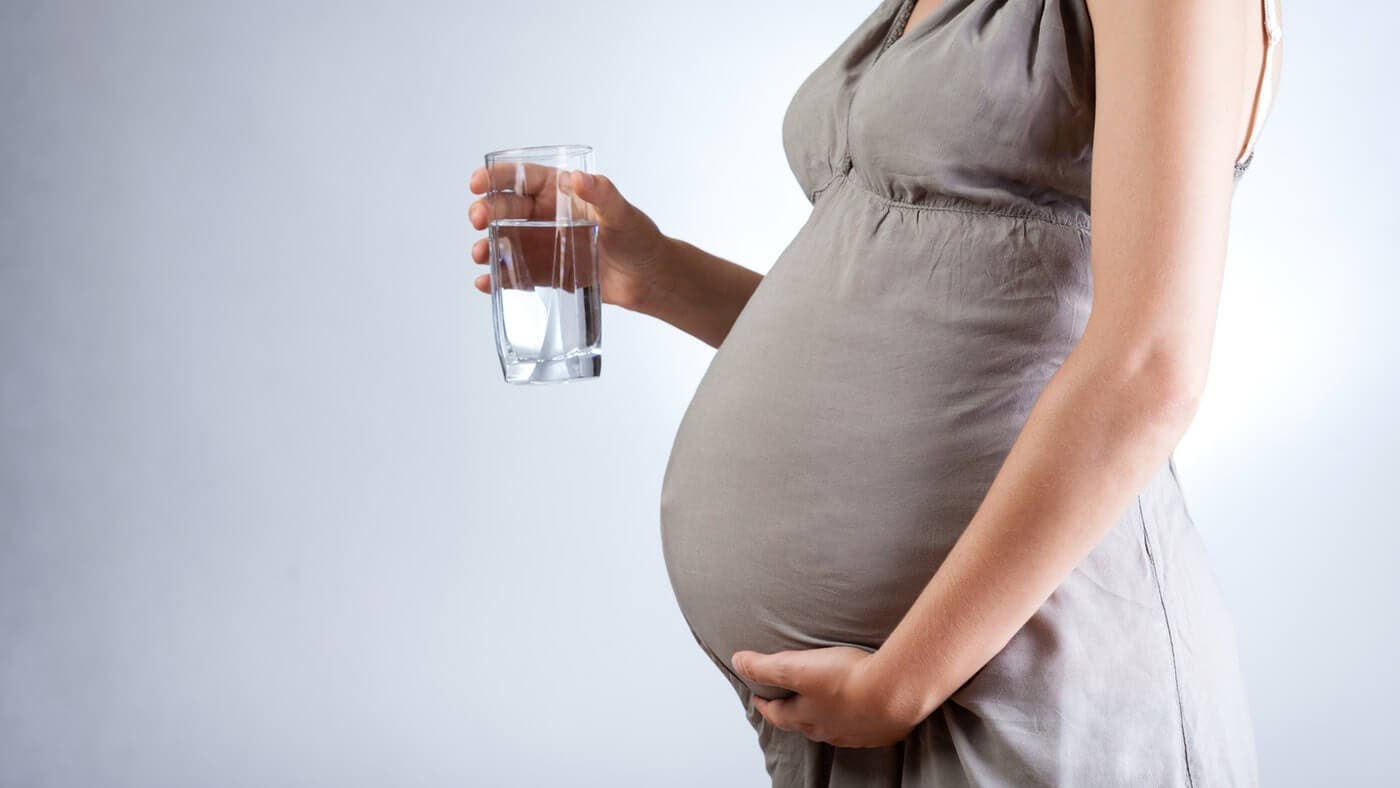
We all need to keep our water levels where they should be. And especially pregnant women. During pregnancy, blood volume increases by about 45 percent.
Your body will direct fluid intake to your baby, but if you don’t watch your water intake, you can become dehydrated yourself.
Symptoms of mild dehydration include headache, anxiety, fatigue, bad mood and reduced memory.
Increasing your water intake can help relieve constipation and reduce your risk of urinary tract infections, which are common during pregnancy.
General guidelines recommend that pregnant women drink about (2.5 liters) of water a day. But the amount you really need varies. Consult your doctor for a recommendation based on your specific needs.
Remember that you also get water from other foods and drinks such as fruit, vegetables, coffee and tea.
Pro Tip: Make sure you have a glass water bottle to quench your thirst throughout the day.
Read also:
- How do I check my gastrointestinal function?
 Stomach pain, constipation or diarrhea, bloating, belching, heartburn? These are all symptoms of problems in the gastrointestinal tract. It starts with the mouth and esophagus and ends with the intestines and rectum.
Stomach pain, constipation or diarrhea, bloating, belching, heartburn? These are all symptoms of problems in the gastrointestinal tract. It starts with the mouth and esophagus and ends with the intestines and rectum. - What are the benefits of hazelnut oil for the skin?
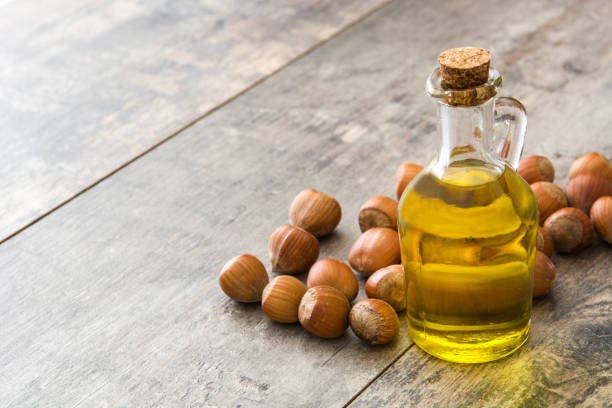 Hazelnut oil is rich in vitamins and essential fatty acids that nourish the skin. Here are a few reasons why you should add this oil to your skin care routine.
Hazelnut oil is rich in vitamins and essential fatty acids that nourish the skin. Here are a few reasons why you should add this oil to your skin care routine. - Immune-boosting aromatic oils
 There are many products and treatments that can help your body to build a natural resistance to the harsh winter months, and aromatherapy is one of them. There are many studies supporting the healing power of aromatherapy and it is good for both mental and physical health. Aromatic essential oils also have many health benefits… Read more: Immune-boosting aromatic oils
There are many products and treatments that can help your body to build a natural resistance to the harsh winter months, and aromatherapy is one of them. There are many studies supporting the healing power of aromatherapy and it is good for both mental and physical health. Aromatic essential oils also have many health benefits… Read more: Immune-boosting aromatic oils - Marula Oil Benefits, Uses, and Precautions
 Marula Oil is an exotic oil that comes from the African Marula tree. It’s a good ingredient for skin, hair, and nails. Learn more about the benefits and precautions of Marula Oil with our guide.
Marula Oil is an exotic oil that comes from the African Marula tree. It’s a good ingredient for skin, hair, and nails. Learn more about the benefits and precautions of Marula Oil with our guide. - Goal setting for students, children and young people
 Remember when you learned how to set goals? If you have trouble answering this question, you are not alone! Most of us don’t spend much time thinking about how we set our goals. In fact, many of us don’t even think of goal setting as a skill; rather, it’s something we do without much thought.… Read more: Goal setting for students, children and young people
Remember when you learned how to set goals? If you have trouble answering this question, you are not alone! Most of us don’t spend much time thinking about how we set our goals. In fact, many of us don’t even think of goal setting as a skill; rather, it’s something we do without much thought.… Read more: Goal setting for students, children and young people
The articles on this site are for information purposes only. The site administrators are not responsible for attempting to apply any recipe, advice or diet, nor do they guarantee that the information provided will help or harm you personally. Be cautious and always consult a doctor or nutritionist!
*All products recommended are selected by our editorial team. Some of our articles include affiliate links. If you buy something through one of these links, you help us earn a small commission from the seller and thus support the writing of useful and quality articles.